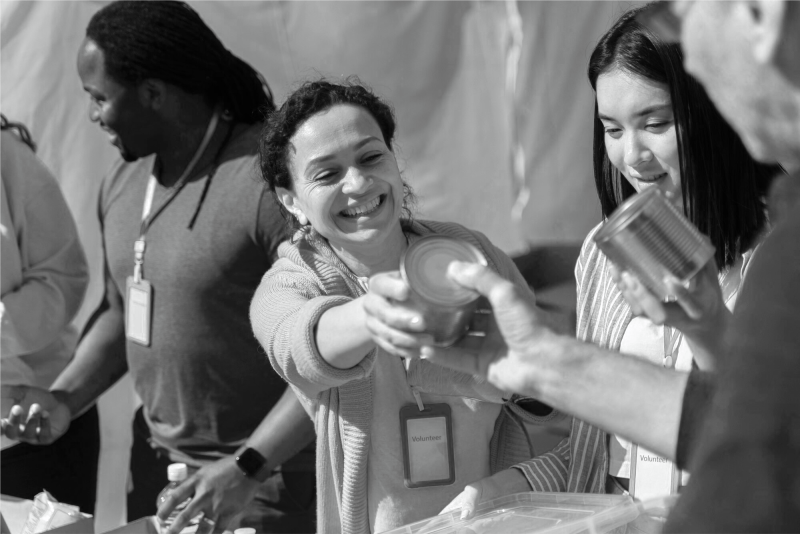What if finding your life’s purpose only required a few deliberate actions?
Many people struggle with the profound question of purpose, frequently feeling lost or unfulfilled without a clear direction. Searching for meaning can be intimidating, resulting in discontent or stagnation.
However, you can find your purpose simply by aligning your beliefs, passions, and strengths. This article will serve as your road map, revealing practical, scientific steps to assist you in finding your purpose.
Take proactive measures to discover and incorporate your life’s purpose. Start by reading below to achieve a more satisfying life!
Understanding the importance of purpose in life
A clear sense of purpose is not merely a philosophical ideal; it significantly impacts happiness, mental health, and well-being.
Research has shown that individuals with a strong sense of purpose tend to experience lower levels of stress, anxiety, and depression. According to a study published in the Journal of Psychological Science, having a purpose leads to healthier lifestyles and even increased longevity.
Read more: Why is it Important to Have a Purpose in Life?
The benefits of having a purpose
Knowing your “why” is essential to make appropriate decisions that align with your core beliefs.
When one aligns with one’s purpose, every decision — from professional pathways to interpersonal connections — becomes more deliberate and precise.
Thus, it serves as a compass, directing your behavior and inspiring you to overcome personal, professional, and social obstacles. It motivates you to work towards important objectives, increasing your sense of fulfillment, passion for your work, and productivity. Having a strong sense of purpose gives life direction.
Additionally, research shows that purpose-driven people report feeling more emotionally resilient and satisfied with their lives. Because their purpose gives context to their hardship, they typically handle stress and setbacks better.
Furthermore, having a defined purpose improves your relationships. Knowing what motivates you makes connecting with people with similar beliefs easier, forging stronger and more lasting relationships. This alignment creates a network of people who can help you through difficult times.
Ultimately, knowing your “why” allows you to live authentically. It inspires you to seize opportunities and make decisions that are consistent with who you are, resulting in a more harmonious and integrated life.
If you continuously reflect and refine your purpose, you can adjust to life’s changes while staying rooted in what is truly important to you.
Read more: How Finding Your Purpose Helps You Excel
Why can’t most people find their purpose in life?
Despite the apparent benefits of having a purpose, many people need help recognizing it.
Social pressures, failure-related anxiety, and a lack of self-awareness are typical obstacles. Distractions abound in today’s fast-paced society, making it simple to lose focus on what matters. The constant onslaught of expectations and information can overwhelm people, leaving little time for reflection and self-discovery.
Furthermore, the fear of being judged might discourage exploration, leading many people to follow social standards rather than whatever interests them. Thus, people tend to prioritize stability and acceptance over true fulfillment, frequently leading to an unfulfilling life.
Finding a purpose can also become difficult because of the unrelenting desire for success, frequently characterized by external markers like wealth or status. Despite apparent achievements, many people pursue objectives that don’t align with who they are, leaving them feeling empty.
Overcoming these challenges, accepting vulnerability, and permitting oneself to pursue interests and passions are all necessary for developing a sense of purpose.
It entails challenging deeply held convictions, considering one’s ideals, and finally having the courage to forge a course that is consistent with oneself. Despite its difficulties, this path can lead to a fulfilling and significant life.
Practices for finding your purpose in life
Engaging in actionable practices rooted in self-discovery is crucial when effectively searching for your purpose. Here are several steps to guide you in your journey:
Reflect on your values
According to research from 1992, values act as a compass that guides our choices and interactions, shaping our attitudes and behaviors. People whose actions align with their values are more likely to overcome obstacles. Putting these principles in writing increases self-awareness and builds resilience.
Regular reflection is the first step toward discovering and connecting with your basic principles. Journaling is a valuable technique. Schedule time every day or week to record your ideas, experiences, and significant moments. Consider what such experiences teach you about your values.
To guide your introspection, you can ask reflective questions such as “What is most important to me?” and “What principles do I stand by?“
Review your principles monthly or quarterly. This will help you become more aware of yourself, leading to more clarity and deliberate decision-making in all areas of your life.
Highlighting values like community, family, integrity, and creativity can help you develop a strong sense of identity and purpose.
Identify your strengths and passions.
Research by psychologists such as Martin Seligman emphasizes the importance of using your strengths for well-being and life satisfaction.
You can align your pursuits with your inherent skills by identifying your strengths: communication, creativity, or critical thinking.
For this, try to identify times when you feel fully alive.
Think back to the last time you felt invigorated by an activity, whether volunteering, painting, or playing sports. When you engage in activities, you often enter a flow state, leading to greater happiness and fulfillment. This is a concept explored by Mihaly Csikszentmihalyi,
Then, schedule time to make two lists: one for your passions and another for your strengths.
Reflect on the experiences where you lose track of time, as these often hold clues to your purpose. Afterward, seek the point where your passion and your strengths meet. The resulting Venn diagram shows the pathways to fulfilling employment and personal development.
This reflective practice increases one’s resilience and adaptability to life’s obstacles, bringing one closer to one’s purpose.
Explore past experiences
Reflecting deeply on important life events also helps uncover your purpose. Interacting with one’s ideals and past fulfillment experiences can improve your general well-being and sense of fulfillment.
Remember when you felt most fulfilled or alive, and ask yourself, “What connections or activities were there at those times?” By reflecting on these peak experiences, you can identify patterns that indicate your core passions.
Your difficulties are equally significant and can influence your viewpoint and personal development. Research shows that overcoming hardship frequently results in increased resilience and a clearer understanding of what matters.
Think back on the challenges you have faced, and ask yourself these questions:
- What lessons did they teach you?
- What impact did they have on your priorities and values?
- Do you see yourself making a career out of those challenges?
By looking at both your happy and difficult times, you can develop a more complex sense of your purpose.
Set small, purpose-driven goals
Setting small, targeted goals consistent with your overall values converts abstract concepts of purpose into doable actions.
To do this, try these steps:
- Determine the overall purpose that you want to pursue.
- Align it with a specific course of action.
- Find the smallest, most achievable step in that course of action.
For example, say you realized that environmental stewardship is part of your purpose.
You may begin by learning more about your purpose and identifying the broad issues and the lesser-known local problems. Then, you look for small, achievable ways that your actions can potentially solve those problems.
As a result, you resolve to use less plastic and even begin joining neighborhood cleanups.
These small steps help you feel connected to your purpose and accomplished. Like this, daily actions that are purposefully aligned with your overarching objectives vastly improve your sense of fulfillment and well-being.
Read more: How to Make a Daily Routine With Meaningful Practices
Seek feedback from trusted sources.
Constructive feedback and social support are essential to personal growth and can greatly increase self-awareness.
Talking with friends, relatives, or mentors provides a variety of valuable viewpoints to consider. They might even help you discover passions and skills you might not otherwise notice.
Consider scheduling a time to speak with trustworthy people. You can do this in person, over the phone, or even by text, depending on what is most convenient and comfortable for you.
Then, ask them targeted, open-ended questions, such as:
- “What strengths do you see in me that I might not notice?“
- “When do you think I seem most engaged or energized?“
- “What skills or passions have you observed in me that you think I should explore more?”
These discussions can reveal fresh ideas, point out areas for improvement, and offer insightful opinions on how your skills fit your purpose.
Discussing your goals and ideals with others who know you well can help you become clearer and more confident in your purpose. Use their advice as a guide to help you set reasonable goals, manage your path, and eventually lead a more satisfying life that is consistent with your fundamental beliefs.
Read more: “Finding Yourself” is Really About Rediscovering Yourself
In conclusion
Finding your purpose is key to living a fulfilling life, as it aligns your behavior with your core values. Connecting with your true self can build resilience, foster meaningful relationships, and enhance overall well-being. You can start on this journey by reflecting on the actions above.
Remember to constantly review your habits to ensure they align with your life’s purpose, embracing the journey of building a fulfilling, authentic life.
Remember, the quest for purpose is not just about reaching a destination. It’s about embracing the process and allowing it to enrich your life. Embrace the transformative power of purpose — your most authentic life awaits.
If you would like to see more resources on purpose in life, check out the Wellbeing Science Labs. The lab uses the research of the Institute for Life Management Science to produce courses, certifications, podcasts, videos, and other tools. Visit the Wellbeing Science Labs today.
Photo by Freepik


